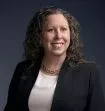- in Oceania
- with readers working within the Transport industries
- within Wealth Management topic(s)
On May 14, 2025, Governor Brian Kemp signed Georgia House Bill 15 into law. House Bill 15, which will take effect on July 1, 2025, will implement several major changes to Georgia's residential mortgage licensing law, the Georgia Residential Mortgage Act (GRMA). These changes include relaxing Georgia's notorious and long-standing prohibition on licensees and license applicants employing or being controlled by persons with a previous felony conviction and adopting corporate governance and financial standards for mortgage lenders, brokers, and servicers.
Criminal Record Provisions
Over the years, the GRMA has become well-known in the mortgage industry for its strict and uncompromising prohibition on licensees and license applicants having a previous felony conviction, or employing any person with a previous felony conviction or guilty plea. Specifically, the GRMA directs the Georgia Department of Banking and Finance to deny any license application, and to revoke a person's existing license, if the Department of Banking and Finance discovers that the licensee or applicant—or any person who is a director, officer, partner, any employee who is involved in Georgia residential mortgage loan related activities (including a mortgage loan originator, processor, or underwriter), ultimate equitable owner of 10% or more of the mortgage broker or mortgage lender applicant or licensee, or any individual who directs the affairs or establishes policy for the applicant or licensee—has been convicted of a felony in any jurisdiction or has been convicted of a crime which, if committed within Georgia, would constitute a felony under the laws of Georgia. Historically, the felony conviction provision has been broad and applied to any felony, regardless of when the judgment of conviction was issued. Because the consequence of inadvertently hiring a person with a felony conviction or who has pleaded guilty to a felony in any jurisdiction—or a misdemeanor that would constitute a felony under the laws of Georgia—is the denial or revocation of a license, the criminal record provisions caused considerable concern among licensed mortgage companies.
House Bill 15 significantly relaxes the felony conviction prohibition. Under the amended GRMA, the prohibition will apply only to persons who have been convicted of or pleaded guilty or nolo contendere to a felony within the previous seven years, or at any time if the felony is specifically defined as a "disqualifying crime." A "disqualifying crime" is newly defined to mean any felony involving a number of financial or fraud-related crimes, including: conversion; theft; money laundering; bribery; dishonesty; false statements or omissions; perjury; extortion; breach of trust; forgery; counterfeiting; embezzlement; insider trading; tax evasion; kickbacks; identity theft; cyber attacks; social engineering; fraud—including, but not limited to: check fraud; credit card fraud; mortgage fraud; medical fraud; corporate fraud; bank account fraud; payment (point of sale) fraud; currency fraud; bank fraud; and securities fraud—or a felony directly related to the financial services business. In doing so, House Bill 15 will bring the GRMA into conformity with the federal Secure and Fair Enforcement for Mortgage Licensing Act (the "SAFE Act"), which requires states to implement standards that, among other things, prohibit the state from issuing a mortgage loan originator license to any individual who has been convicted of, or pleaded guilty or nolo contendere to, a felony in the previous seven years; or at any time if the felony involved an act of fraud, dishonesty, breach of trust, or money laundering.
Prudential Standards
House Bill 15 also amends the GRMA to adopt the Conference of State Bank Supervisors' model prudential standards for nonbank mortgage companies. Once the law takes effect, Georgia will join Arkansas, Colorado, Connecticut, Iowa, Maryland, Minnesota, Montana, Nevada, and North Dakota in the growing list of states that have adopted a version of the prudential standards.
Georgia's prudential standards require licensed nonbank mortgage companies to maintain the following:
- A minimum net worth that varies depending on the license type and size of the entity.
-
- Licensed mortgage brokers must maintain a $50,000 minimum net worth.
- Licensed mortgage lenders that do not meet the definition of "covered servicer" must maintain a minimum net worth of $100,000 and evidence of liquidity of $1 million, which may include a warehouse line of credit.
- "Covered servicers," which the amendments define to mean a mortgage servicer with a portfolio of 2,000 or more residential mortgage loans serviced or subserviced as of the most recent calendar year end (regardless of whether the servicer maintains GSE approvals), must maintain minimum capital, net worth, and liquidity that meet GSE requirements for a single-family seller/servicer.
- Written policies and procedures implementing the applicable capital, net worth, and liquidity requirements under the amended GRMA, including a "sustainable written methodology" for satisfying the capital, net worth, and liquidity requirements.
- Sound cash management and business operating plans that match the size and sophistication of the licensee, and plans, policies, and procedures for maintaining sufficient liquidity for ongoing operations.
- A board of directors or similar body that exercises oversight and is responsible for: (i) establishing a written corporate governance framework commensurate with the size and scope of the licensee's operations; (ii) monitoring and ensuring the licensee's compliance with the corporate governance framework and the GRMA; and (iii) accurate and timely reporting, including compliance with Mortgage Call Report filing requirements. The board of directors (or similar body) must establish internal audit requirements appropriate for the size and scope of the licensee, and an audit function that has appropriate independence to provide a reliable evaluation of the licensee's corporate governance, risk management and internal control structure. (House Bill 15 provides that licensees may utilize third parties to assist with this and other corporate governance requirements.)
- A risk management program that is appropriate for the size, complexity, and risk profile of the licensee, with appropriate processes and models to measure, monitor, and mitigate financial risks and changes to the risk profile of the licensee. Licensees must also conduct an annual risk assessment and report findings to the board of directors.
House Bill 15 also provides the Georgia Department of Banking and Finance with the authority to address safety and soundness risks identified in its supervision of licensees, including temporary suspension of a licensee.
Visit us at mayerbrown.com
Mayer Brown is a global services provider comprising associated legal practices that are separate entities, including Mayer Brown LLP (Illinois, USA), Mayer Brown International LLP (England & Wales), Mayer Brown (a Hong Kong partnership) and Tauil & Chequer Advogados (a Brazilian law partnership) and non-legal service providers, which provide consultancy services (collectively, the "Mayer Brown Practices"). The Mayer Brown Practices are established in various jurisdictions and may be a legal person or a partnership. PK Wong & Nair LLC ("PKWN") is the constituent Singapore law practice of our licensed joint law venture in Singapore, Mayer Brown PK Wong & Nair Pte. Ltd. Details of the individual Mayer Brown Practices and PKWN can be found in the Legal Notices section of our website. "Mayer Brown" and the Mayer Brown logo are the trademarks of Mayer Brown.
© Copyright 2025. The Mayer Brown Practices. All rights reserved.
This Mayer Brown article provides information and comments on legal issues and developments of interest. The foregoing is not a comprehensive treatment of the subject matter covered and is not intended to provide legal advice. Readers should seek specific legal advice before taking any action with respect to the matters discussed herein.


